By Princess G. Adebajo-Fraser MFR.
The National Patriots.
There are stories that soothe, and there are stories that sting. The one circulating online about an Indian man’s conversation with his Japanese friend does both — but more importantly, it awakens.
It is a mirror held up not only to India, but to all post-colonial societies still trapped in cycles of betrayal, self-interest, and national amnesia.
For Nigerians, it is a piercing question: why do nations like Japan, once annihilated by war, rise in unity, while nations like ours, rich in potential, remain divided and uncertain more than sixty years after independence?
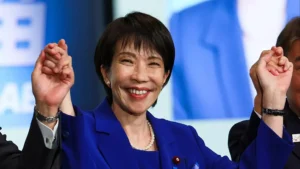
The Japanese Lesson: Dignity Before Sympathy
Japan was a wasteland in 1945. Two nuclear bombs, Hiroshima and Nagasaki, turned cities into ashes. Yet within a generation, it transformed itself into the world’s second-largest economy. Not through aid or pity, but through pride, discipline, and a collective national will.
The Japanese rebuilt with the spirit of ganbaru — perseverance without complaint. They made humility and excellence their national creed. The Japanese refused to be victims; they became visionaries.
Japan did not beg for reparations; it built Toyota, Sony, Mitsubishi, and Hitachi — global empires born out of ruins.
As the Japanese friend told the Indian in that viral post:
“If your nation is not strong, your home will never be safe. If your character is weak, no flag can protect you.”
This truth transcends geography. It applies to every nation where corruption, tribalism, and greed have replaced unity, service, and sacrifice.
India’s Warning: When a Nation Becomes Its Own Colonizer
The Japanese friend’s words to his Indian counterpart were harsh but factual. During British rule, a few thousand colonial administrators controlled hundreds of millions of Indians — not through strength of arms, but through the cooperation of the ruled.
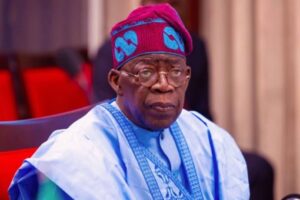
Indian soldiers pulled the triggers at Jallianwala Bagh. Indian tax collectors enforced British orders. Local elites traded loyalty for privilege.
The British mastered divide and rule — exploiting fault lines of religion, caste, and ethnicity. They turned Hindus against Muslims, and princes against people. The slogan “divide and conquer” became both a tactic and a legacy.
Even after independence, the divisions lingered. The 1947 Partition tore India and Pakistan apart, displacing over 14 million people and killing nearly 2 million. The psychological wounds endure to this day.
That same British strategy — divide, weaken, dominate — was applied across the Empire, from India to Nigeria. The scars remain visible.
The Nigerian Paradox: Freedom Without Unity
When Nigeria gained independence in 1960, it had one of Africa’s most promising economies. It inherited a federation rich in oil, minerals, fertile land, and intellect.
Yet, more than sixty years later, Nigeria still struggles to define itself as one people. Why?
Because colonialism may have ended, but its psychological blueprint endures.
The British sowed distrust among Nigeria’s ethnic groups — Yoruba, Igbo, Hausa, Fulani, Ijaw — and elevated regional identity over national identity. They left behind a structure designed for dependency and division.
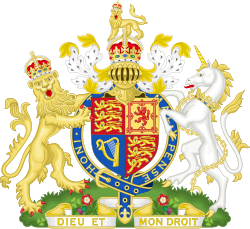
The Divide and Rule Legacy
The British built an administrative model that ensured one region could not dominate another, yet encouraged competition rather than cooperation. They drew artificial borders, imposed indirect rule, and created educational and economic disparities between North and South.
After independence, Nigeria’s leaders inherited not a nation — but a battlefield of interests.
The civil war of 1967-1970 was its most tragic expression. Brothers turned on brothers, and over one million lives were lost. The wounds of Biafra still bleed quietly in our politics and society.
The Yoruba Exception: A Forgotten Chapter
History, however, records that not every Nigerian group surrendered to British domination without resistance.
The Yoruba people fought fiercely during the British campaign to subdue the region. The Ekiti Parapo War (Kiriji War), which lasted from 1877 to 1893, saw the Yorubas wage one of the longest and most organized resistances in West Africa.
They recruited mercenaries, built alliances, and fought for self-determination until exhaustion and superior weaponry forced negotiation.
Unlike in India, the Yoruba were not collaborators in the conquest; they were combatants. The British had to sign treaties to secure control, not merely issue commands.
It is a reminder that resistance and self-respect are not foreign to us — we have simply forgotten them.
The True Slavery: The Slavery of the Soul
The Japanese friend’s statement cuts deeper than politics.
“You don’t need foreign enemies. Your own people betray you again and again for power, position, and personal gain.”
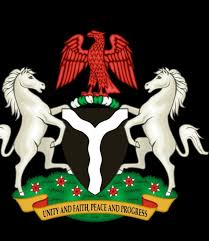
That line could easily describe modern Nigeria.
From colonial times to today, Nigeria’s greatest enemy has often been internal — politicians who sell national interest for personal gain, citizens who trade conscience for short-term benefit, and elites who divide rather than build.
We see it in vote buying, in tribal politics, in the culture of “my turn” leadership.
Every election cycle, Nigerians are given small tokens — rice, wrappers, cash — in exchange for votes, and the cycle of corruption renews itself.
Like India under the British, the oppressor no longer wears a foreign face. He wears a Nigerian one.
Character, Not Circumstances, Defines Nations
Japan’s resurrection wasn’t merely economic. It was cultural. They rebuilt trust, discipline, and responsibility as social norms.
They do not litter their streets. They do not blame others for their misfortunes. They teach their children civic pride and national responsibility before they teach ambition.
In Japan, the collective good comes before the individual. In Nigeria, it is too often the reverse.
We confuse freedom with disorder, democracy with entitlement, and success with selfishness.
As a result, we remain free on paper but enslaved by habits that undermine our destiny.
The Path to Healing: What Nigeria Must Learn
If Nigeria is to survive the lingering wounds of colonial manipulation and ethnic division, it must confront four urgent realities:

1. Character Reform Must Precede Political Reform
A nation’s strength lies in its citizens, not its constitution. Until Nigerians value integrity more than influence, we will continue electing leaders who mirror our worst traits.
2. Education Must Inspire National Consciousness
We must teach Nigerian children the same civic pride that the Japanese teach theirs. Our history lessons must celebrate unity, not division; resilience, not resentment.
We must stop teaching colonial history as if it were a tragedy only — and start teaching it as a lesson in vigilance and self-reliance.
3. Unity Must Be Built, Not Assumed
Independence does not erase division; unity must be constructed through deliberate policies of inclusion, dialogue, and justice.
Regional balance, fair resource distribution, and mutual respect among ethnic groups are essential for peace.
4. Leadership Must Serve, Not Rule
When leaders see themselves as custodians, not conquerors, nations heal. Nigeria’s political elite must realize that power is not possession — it is stewardship.
The Psychology of Betrayal and the Call to Renewal
The Indian in the story stood silent and ashamed. Many Nigerians, reading the same account, feel the same.
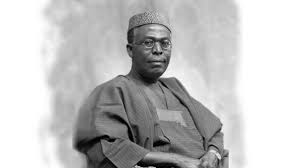
We have betrayed ourselves in countless ways:
By tolerating corruption.
By selling our votes.
By remaining silent when justice cries out.
By hating our neighbor because of tribe or religion.
The British may have planted the seeds of division, but it is we who continue to water them.
True freedom begins when a people stop blaming history and start shaping destiny.
Rebuilding the Nigerian Soul
Nigeria’s journey will not mirror Japan’s exactly — but the principles are the same.
We must cultivate discipline, honor, and collective responsibility.
We must rebuild industries, not just politics.
We must rediscover national pride, not in slogans, but in actions.
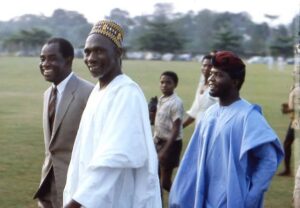
Imagine a Nigeria where:
Public servants refuse bribes.
Citizens pay taxes and demand accountability.
Communities clean their streets without waiting for government.
Children are taught that service to the nation is service to God.
This is how nations rise. Not through aid, but through awakening.
The Mirror Does Not Lie
The Japanese did not rebuild Japan by magic; they rebuilt it by character.
The Indians are still healing from division — yet even they have risen as a global power through innovation and education.
Nigeria stands at a crossroads. We can continue trading loyalty for survival, or we can reclaim dignity through unity and discipline.
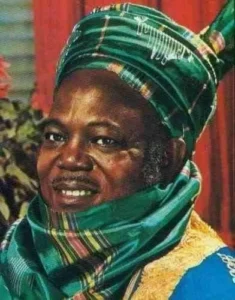
The question remains: will we, like Japan, face our pain and rebuild?
Or will we, like the Indian in the story, keep looking at the mirror in shame?
“If your nation is not strong, your home will never be safe. If your character is weak, no flag can protect you.”
That truth is not Japanese, Indian, or British.
It is universal.
And it is Nigeria’s turn to face it.
The National Patriots has a Blueprint on how Nigeria can cultivate discipline, honour and collective responsibility like Japan to build a better Nation in reasonable time.
God bless the Federal Republic of Nigeria.
Princess Gloria Adebajo-Fraser MFR.
The National Patriots.
Governance & Perception Management Consultant.




